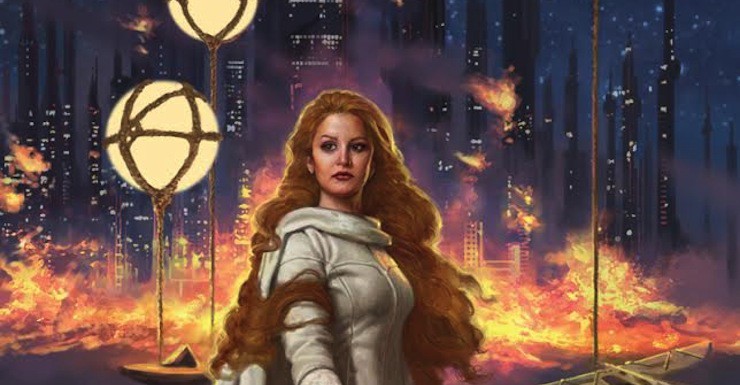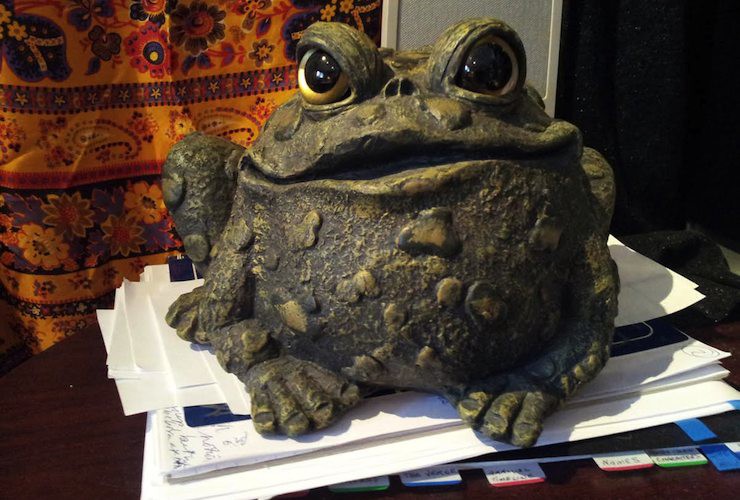I’ll admit I didn’t see this coming.
Any of it.
Starting with any sort of fan mail. I’d assumed, pre-publication, people only wrote to media celebrities. My delight when I actually received my first letter, and it was a real on-paper letter, was mixed with shock. Really? Me?
With a tinge of guilt, I realized I’d never thought to write to an author. Given my feelings upon receiving such a letter, this seemed especially remiss of me. At once I checked who among my favorites were still alive, and hastened to write to my own.
Eagerly, as you might imagine, awaiting the next arrival in my box.
Imagine my puzzlement when our local post office called, the person sounding rather testy, and asked me to come and “get my bag.”
It was an enormous, bulging, dirty canvas bag, stamped “U.S. Mail.” The sort I’d only seen in the movies. Santa Claus had bags like this. Could it be…fan mail?!
Clearly, if so, I’d made it. Big.
Well, no. Not exactly. Family gathered around, my husband put down the heavy bag home and removed the seal, letting me look first. Oh. It wasn’t fan mail, but somehow my author copies had warranted the bag, despite being in several smaller boxes. Don’t get me wrong: first author copies (and every batch since) are a joy to receive and affirming.
But it wasn’t, I sighed to myself, echoed by sighs all around, a bag of fan mail.
In reality, mail from readers to authors does arrive, and I was pleased to indeed receive such mail in steadily increasing number, via email as well as letters sent via my publisher. (When some of the latter were from readers listing, let us say, dubious return addresses, I was gently advised to write back via my publisher too.)
I’d have been even more gratified if all this fan mail had been for me.
Most wasn’t.
Most was for sidekicks, starting with one. Huido Maarmatoo’kk. (I know I’m not imagining those happy faces as you read this.)
Concerning Lobsters
A Thousand Words for Stranger being my first novel, I’d reined in some of my odder biological notions. Huido, I had to have. It bugged me when people explained, often with a tone of “aren’t you an idiot,” how there couldn’t be a shelled organism larger than a lobster, a present-day lobster at that. The facts behind air exchange and exoskeletons weren’t the issue. To me, the issue was my instructors were stuck in here and now. I wanted to figure out how.
So I invented the Carasians, who have a thick black chitonous exoskeleton—and claws—as well as scallop-inspired multiple stalked eyes. They’re built like small tanks and have no problem with the sort of gravity suited to humanity. If pressed to the wall, yes, I think of Carasians as having internal framework, along with lungs, being aware of biology. But Huido is, to all extents and purposes, a giant walking lobster. A loud, well-armed, walking lobster.

Who owns a restaurant. It tickled my funny bone. Being new to all this, I wasn’t sure I’d be allowed to get away with that either, but I was. Give me an inch, so to speak, in biology, and I’ll grab everything weird about the natural world and stuff it my books. Oh wait, I do.
Huido’s approach to life is based on a dear family friend’s, whose favorite pastimes include making young lovers blush and feeding everyone, preferably at the same table and time. Huido was the best friend of one of my main characters, Morgan. He was to be funny and move the plot along. You know. Sidekick 101.
Not so, according to Huido’s fan mail. He was potent, powerful, and perfect! Which each new book in the series, I received urgings for more Huido. Not to mention presents. I’d have enjoyed receiving edible lobsters, but the stuffed ones were nice too. Apparently he’s handsome. Sexy.
People, he’s an opinionated mostly-lobster!
Matters not, it appears, to a reader’s affection. I was bemused and a little jealous.
Then, there was Barac sud Sarc. Another sidekick of the classic sort: a character to represent “regular folks” among the alien Clan. When Barac developed a fan base, for he did, I raised a goodly sum of money for charity by auctioning off the name of his future love interest. Friends combined loot to win the bid, leading to Ruti di Bowart. The point was, Barac had captured more attention than I’d expected.
We learn by doing and whatever I’d done, it was working.
Fourteen and Mudge
By the time I wrote Species Imperative, I took the creation of sidekicks seriously indeed. I’ve two in the story, one human and one alien, who fit the criteria: Charles Mudge and Fourteen. Charles Mudge the III, that is, who arrived in the story when my editor asked for some clarification about government structure in my imagined future Earth. I came back with a dry, fussy bureaucrat sure to annoy the heck out of Mac, my main character—and she’d be stuck with him as a sidekick. Fourteen? Oh, he’s my alien tourist, come to Earth to launch pranks and wear bad t-shirts. He’s her sidekick too. Both are who they are when they arrive in the story and stay that way. No growth. No deep personal story arcs. Yes, we learn they have depths, but they’re simply there, the former a cantankerous foil, the latter often as not providing salacious commentary. Yes, they get fan mail. Mudge has even made people cry.
To my great delight. Writers are like that.
Along Came Toads
If one sidekick—or two—worked for a story and are liberating to write, how about more? That’s not why there are house toads in my fantasy series, Night’s Edge, but it doesn’t hurt. I’d picked toads as ordinary and harmless-seeming, something I’d reveal as magical as the story progressed. What happened, over the course of writing the initial novel, A Turn of Light?
They became my sidekicks. Apparently I’m not immune.
Toads hopped into my online life. Toads appeared under our Christmas tree. Not only did I make toad cookies for the book launch, I made (or decorated) house toads for each of the location of my launches. Care to meet them? They’re all still there, being most excellent sidekicks. (And yes, I’ve had mail.)
The Takeaway?
Back to Huido. By book three of the Trade Pact, Huido not only opened the action with a prologue (and finished it with an epilogue), he gained relatives and yes, he’s in This Gulf of Time and Stars. (In Huido’s case, I suspect he’s so much larger than life he’s taken on a life of his own. I respect that.) I’ve learned a good thing when I have one. So far, I’ve had three, no, make that four NYT bestselling authors try to wheedle the big guy’s fate out of me.
Not telling.
What is a sidekick, anyway? Comic relief, sacrificial lamb, convenient sounding board, all of the above. Maybe, when done right, a sidekick is more. Going by my fan mail, the characters I wrote as sidekicks are those readers take to their hearts. Is it because sidekicks are more constant and accessible than protagonists who, after all, must deal with the angst and responsibility and be forever changed? Or is it something else? I believe a sidekick, a good one, is an invitation we offer readers without realizing it. Here’s your spot. Enter my world. Be part of the story too.
All I can prove is that sidekicks mustn’t be taken lightly. Readers pay attention to them. So should we.
Top image from Matt Stawicki‘s cover art to This Gulf of Time and Stars.
Since 1997, Canadian author/editor Julie E. Czerneda has shared her love and curiosity about living things through her science fiction, writing about shapechanging semiimmortals, terraformed worlds, salmon researchers, and the perils of power. Her fourteenth novel from DAW Books was her debut fantasy, A Turn of Light, winner of the 2014 Aurora Award for Best English Novel, and now book one of her Night’s Edge series. Her most recent publications: a special omnibus edition of her acclaimed nearfuture SF Species Imperative, as well as book two of Night’s Edge, A Play of Shadow, a finalist for this year’s Aurora. Julie’s presently back in science fiction, writing the finale to her Clan Chronicles series. Book #1 of Reunification, This Gulf of Time and Stars, will be released by DAW in November 2015. For more about her work, visit her on Facebook, Twitter, or Goodreads.












you make great sidekicks! My favorite is Scourge and it is not just because I was his original owner. I do love the roads too. I bought you one once, but it was so cute, I kept it. :D
I think people love sidekicks because they can identify with them. Sidekicks not only provide comic relief but they make the hero more accessible, take for instance the classic exemple of Doctor Who. A virtually immortal alien that by his own admission is “a mad man with a box”, without a sidekick (companion) to “humanise” him, he could be as frightening as some of the vilain. So Huido, Scrouge, the toads and all the others wonderful sidekick you gave us will always have a special place in our hearts. Thank you for them all.
I remember the first time I sent a letter to an author. I mailed it c/o the publisher, who sent it back saying they had no idea who that person was.
I have never read your books. But after hearing about this great mix of sidekicks, I will go find some and read.
Thanks!
Sidekicks really can make or break a story.
You have a point, Kimm. I never thought of Scourge that way. Although Tir Half-face would qualify, don’t you think? And everyone should have a toad. Good for you.
Thanks, Ginette. Most appreciated!
Ellynne- how sad! You have to wonder. It is a little easier these days to find authors online–but then again, you can’t always tell if there’s a pen name involved.
I hope you enjoy, Braid_tug! Can’t ask for more than that.
The toads in A Turn of Light were among my favorite characters. But one of the things that I like about your books is that you take the time to make even the smallest characters interesting. You’ve done that since A Thousand Words for Stranger. A Turn of Light was my favorite book of 2014 btw.
Thanks, Shelly!! Most appreciated.
Reading this article, I remembered something you said once – that In the Company of Strangers, you sometimes felt like the station was a character. I agree! Not sure if it is a sidekick though – but I did enjoy your short ‘sequel’ the Franchise. Sweet. Thank you for all the great writings.
While they may not be sidekicks, I find it funny that toads or toad-like creatures appear as characters in both the Trade Pact/Clan Chronicles books as well as the Night’s Edge fantasy series. Toads are such funny, seemingly pompous creatures! And I do find that “sidekicks” of any kind are sort of unsung heroes of a novel. Without them, plot points often seem too contrived. It’s always disappointing when an author carelessly “dismisses” them (by killing them off or otherwise making them go away) as though they got bored writing the character. Sometimes I find the “sidekick” far more interesting than the main protagonist, and I stop caring about the story once they’re gone. Note I say “carelessly”: sometimes “dismissing” sidekicks is necessary to further the plot or for character development, and is something else altogether!